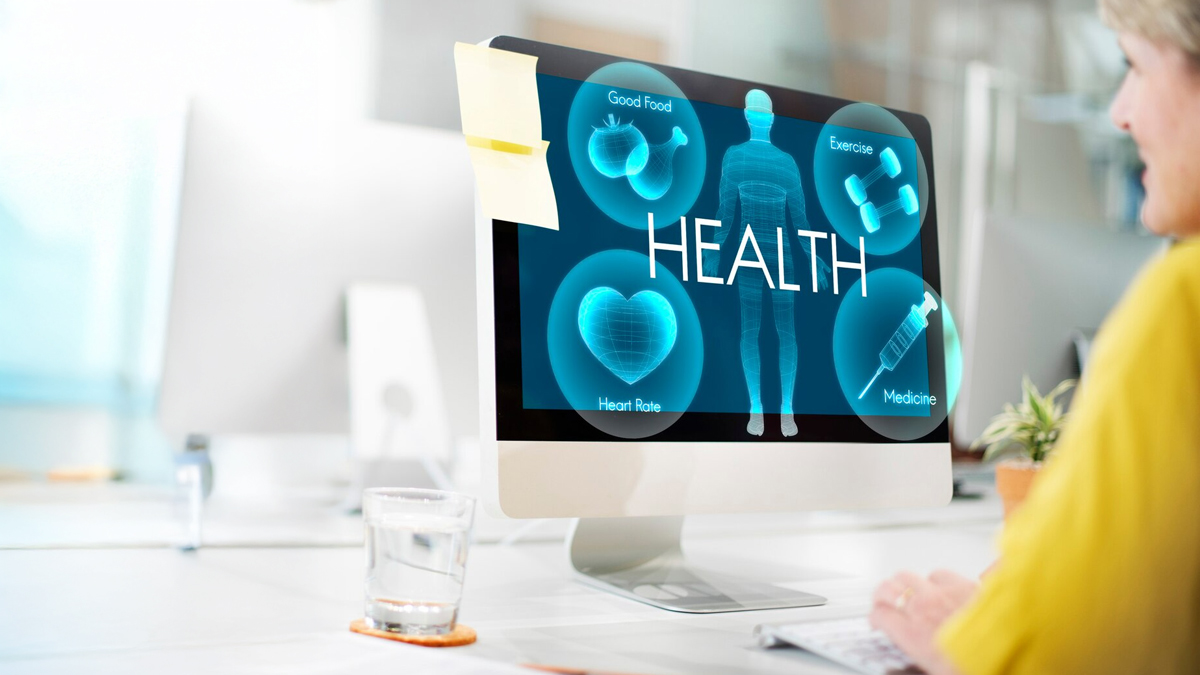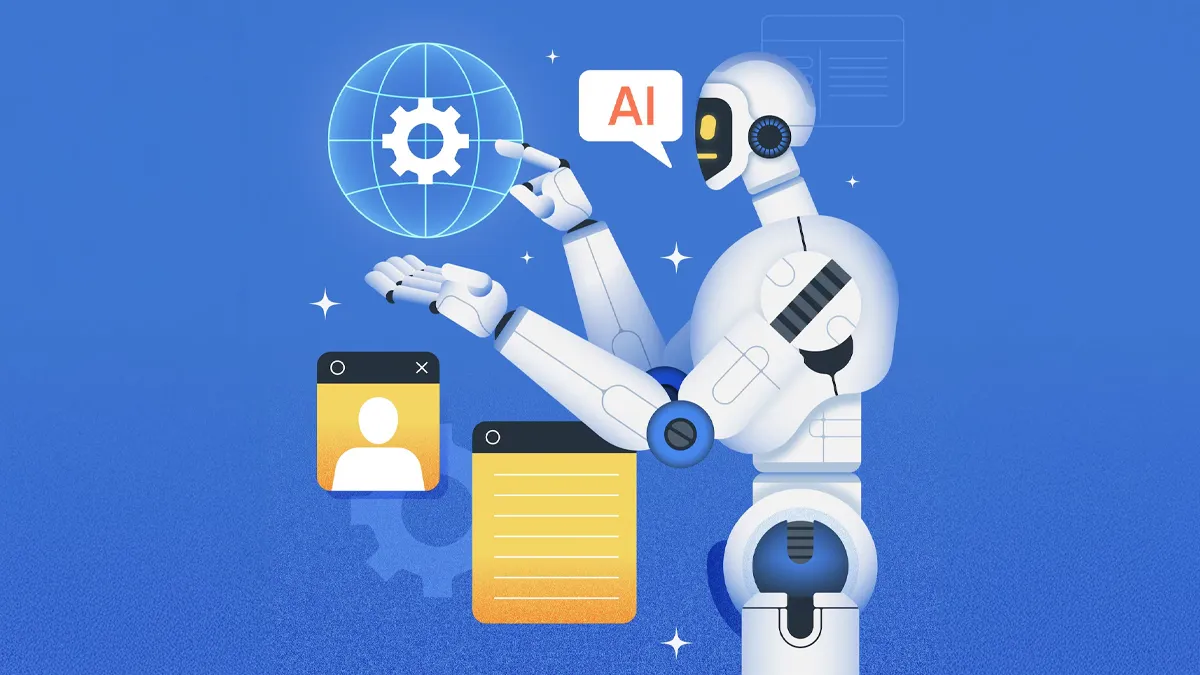
Artificial Intelligence (AI) has rapidly turned into a healthcare buzzword. From smartphone apps that check your symptoms to sophisticated machine learning algorithms that forecast disease outcomes, technology is irrevocably transforming how we think about medicine. But amidst the promise of instant answers, there is a hard reality that AI is not a doctor.
Table of Content:-
In an exclusive interview with Dr Akshay Sharan Awasthi, Senior Resident at Hedgewar Arogya Sansthaan, Govt. of NCT - Delhi, we deep dived into the brilliance and limitations of AI in medicine, and why human know-how, compassion, and training are invaluable.
AI has transformed medical research and data analysis. While scanning millions of datasets in a matter of seconds, AI can find correlations that may take human years to recognise. AI models, for example, are being employed to identify early symptoms of Alzheimer's or determine cancer risk factors.
Dr Awasthi, though, warns against overestimating its capabilities. "AI can accelerate research, but in treating patients, it's not reliable enough. It can't provide input on nuanced symptoms, individual patient histories, or unusual cases the way a physician can. A tool is meant to assist, not replace medical advice."
A 2023 JAMA study highlighted that AI chatbots gave safe and accurate medical responses only about 60–70% of the time, a percentage far too low when lives are at stake.
Doctor’s Training vs. AI’s Functionality
The difference between AI and a doctor lies not just in knowledge, but in how that knowledge is applied. Doctors go through decades of intense training, MBBS, post-graduate residencies, and specialised fellowships. They get tactical feedback from real-time patient interactions, mentors, and the complexities of cases. Each diagnosis refines their judgment.

AI, on the other hand, operates on pattern recognition. It has no idea other than what is fed to it. If a condition is rare or a patient has atypical symptoms, AI can fail.
"A veteran physician with 20 years of experience has seen thousands of patients. Each patient adds richness and instinct that AI simply cannot match. However sophisticated, AI is still limited by its data. Medicine involves subtlety, and subtlety cannot be programmed," Dr Awasthi explains.
Also Read: Social Media Ban in Nepal: How Gen Z’s Mental Health Could Be Affected, Expert Sheds Light
The Human Touch: Compassion & Physical Examination
Healing is more than medication; it's about listening, observing, and relating. "When a patient comes to me, I don't only listen to what they say. I observe their body language, their nervousness, their hints. At times, a quiver of the hand, a look of pallor, or even silence tells me more than words," says Dr Awasthi.
AI lacks this dimension. It cannot perform a physical examination, nor can it provide the comfort of a doctor’s reassuring presence. In fact, studies show that patients who feel emotionally supported by their doctors recover faster and adhere better to treatment plans.
"Empathy is treatment. Without it, you’re only treating half the disease," Dr Awasthi emphasises.
Risks of Over-Relying on AI in Healthcare
While AI can assist in screening or flagging potential risks, overdependence can have perilous effects. Such as:
- Misdiagnosis or delayed diagnosis: AI can miss serious diseases by underestimating risk.
- One-size-fits-all advice: Doctors can consider individual lifestyle factors, cultural background, or comorbidities, whereas AI cannot.
- False reassurance: Patients might dismiss symptoms, believing that AI has cleared them.
- Delayed medical attention: By the time the issue is diagnosed, it can be too late.
A report by the World Health Organization (WHO) in 2023 cautioned that early overdependence on AI would exacerbate health disparities, especially in low-resource areas where individuals might not get professional help following an erroneous AI output.

When AI Goes Wrong: A True Story
Dr Awasthi remembers a tragic event that remains with him to this day.
"A lady came to me after relying on an AI symptom checker. It informed her that the lump in her breast was not a big deal. She neglected it for months. When she finally came for a proper examination, she was already at Stage 4 breast cancer. Now, she has barely a few months to live, and her organs are closing down one by one. If she had gone to see a doctor earlier, chances of survival would have been way better."
This case highlights the lethal dangers of misplaced trust in AI. One incorrect recommendation delayed timely intervention to save a life.
A Message to Patients
To patients attracted to the ease of AI, Dr. Awasthi has a stern reminder. "Don't compare my degree to your favourite AI tool. A doctor’s degree is the product of years of sleepless nights, long exams, and direct experience with thousands of patients. AI can't substitute the intuition, empathy, or accountability of being a doctor."
He continues, "AI can be a great helper, but your health is worth the judgment of a pro. Use AI as a guide, not a decision-maker. When in doubt, trust your doctor, not a machine."
Final Takeaway
AI is an amazing innovation, but it's just that, a mere tool. Real medicine is a combination of science, skill, and humanity. Although AI can supplement healthcare, it can't substitute the experience, empathy, and responsibility of a physician. Therefore, we urge you to go visit a doctor if you feel there’s something wrong or needs professional attention.
Also watch this video
How we keep this article up to date:
We work with experts and keep a close eye on the latest in health and wellness. Whenever there is a new research or helpful information, we update our articles with accurate and useful advice.
Current Version
Sep 09, 2025 13:21 IST
Published By : Tanya Srivastava